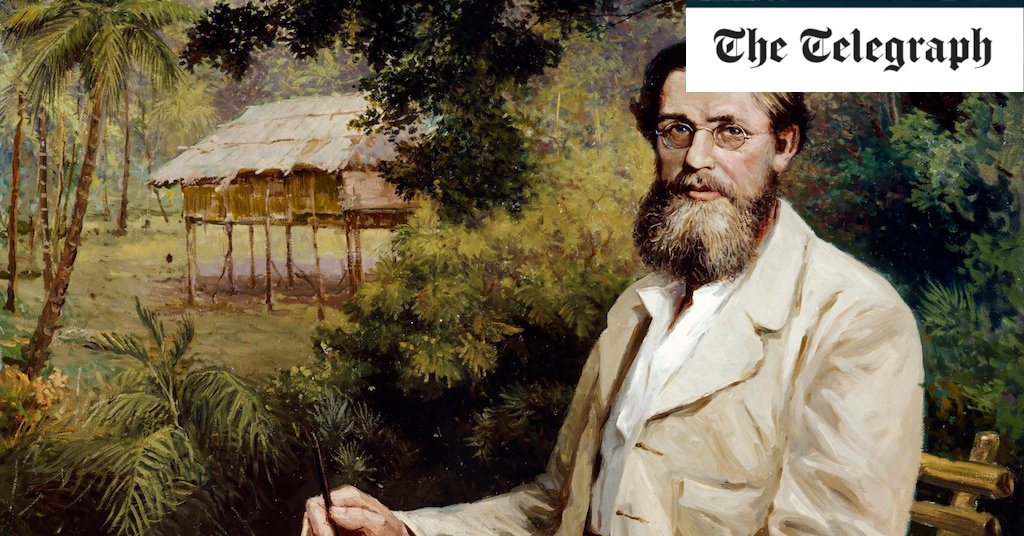It also states that “he mistakenly believed that all races were equal.”
Wallace’s panel is one of around 350 that have been installed across Leicester since the local council funded the heritage trail project in 2014.
Other heritage panels produced during this period include those on Laurel Aitken (the “Father of Ska”), Leicester city’s Chinese community and curry houses.
A monument to Wallace was erected on College Street, where he worked in his twenties, before beginning his scientific career and gathering evidence that species had adapted under the strain of deadly environmental pressures.
Wallace began teaching at the Collegiate School in Leicester in 1844 and spent much of his career in the tropics, particularly in the Malay Archipelago, where he came to the conclusion that species evolve as a result of environmental pressures.
Leicester was the site of public protest in the 19th century against the increasing use of vaccinations in medicine and the 1853 Vaccination Act, which made it compulsory for young children to be vaccinated against smallpox.
“Just being a good scientist”
Wallace wrote articles for the National Anti-Vaccination League, which was formed in 1896, and authored books such as “Vaccination is a Delusion” and “Vaccination: Proven Useless and Dangerous,” in which he argued, based on the available data, that vaccination did not save lives.
The negative portrayal of vaccine concerns has drawn criticism from expert scientist Dr. George Beccaloni, director of the Alfred Russel Wallace Correspondence Project and founder of the Alfred Russel Wallace Memorial Fund.
“It’s very unfair to portray his views on vaccinations in a negative light. He is just a good scientist who is opposed to vaccinations based on the available evidence,” Dr Beccaloni said.
Dr Beccaloni, who is also an evolutionary biologist, argues the committee’s allegations about Wallace’s racial views are unfair.
He said: “He believed in spiritual equality between the races and spoke out against imperialism and racism.”
“Although he certainly believed that Victorian science and technology were superior in many ways, he frequently criticized Westerners for misusing the planet’s resources and treating the ‘common people’ badly.”
In his 1869 book The Malay Archipelago, Wallace complained that Britain, despite its “high degree of civilisation and pure Christianity”, was “still in a state of barbarism” and that its wealth was used to control its people, many of whom turned to crime.
Leicestershire County Council has been contacted for comment.

